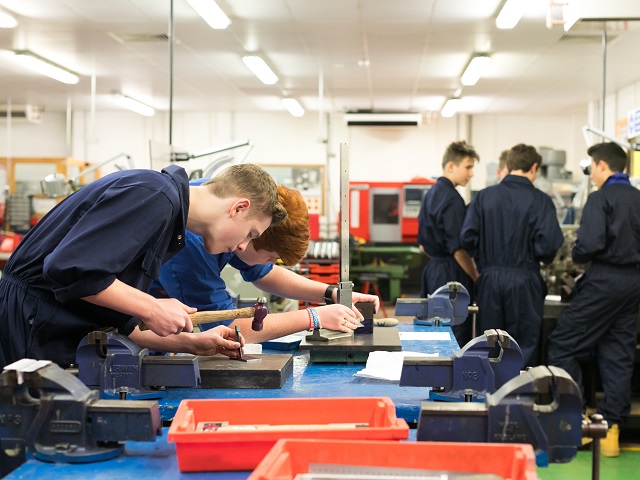
Young people studying engineering hold the key to reducing the impact of climate change, and Tomorrow’s Engineers Week is exploring ideas for the engineers of the future.
Tomorrow’s Engineers Week is taking place from 8 to 12 November 2021, highlighting to young people that engineering is a creative, problem solving, exciting career that improves the world around us.
Coinciding with the 2021 United Nations Climate Change Conference, also known as COP26, the themed week has prompted teaching staff from our engineering courses to consider how our students can lead the way in developing technology to tackle the climate emergency.

Martin Whitear, who teaches engineering, said:
“Engineering is at the forefront of COP26, with engineers leading the way in future tech revolving around the environment and future sustainability of resources.
“With climate change, we are finding new and interesting ways in which to draw energy from mother Earth in order to eradicate the use of fossil fuels and other harmful resources we currently overuse.
“These range from using the ocean waves to generate power, to the wind turbine farms all over the world helping move away from fuels to more sustainable and non-harmful sources of energy.”
Level 2 Engineering students at HSDC discuss solar energy during their studies, and plenty of Level 3 students have worked on solar-powered mobile phone chargers as part of their work.
On the Level 4 HNC course, students learn how to program an environmental data logger for wind and rain, using the data to predict changes in weather.

These are just a handful of ways HSDC students are learning to solve the problems presented by climate change, and during Tomorrow’s Engineers Week engineering institutions, employers and schools across the country are working together to discuss solutions.
For young people, it’s a chance to explore how they could address local and global challenges in their future careers.
Another area considered and explored by staff and students at HSDC is innovation in the transport sector.
Road transport accounts for 10% of global emissions, with a shift to zero emission vehicles already underway and electric vehicles set to be required in the near future to cut air pollution and reduce greenhouse gas emissions.
Garry Adams, Programme Lead for Engineering and Automotive, said:
“This is one of the most dramatic changes in automotive history and our courses are adapting and changing constantly to keep up to date with the latest technology and developments to aid our students to support the road to zero emission vehicles.”
For more information about Tomorrow’s Engineers Week, visit teweek.org.uk.